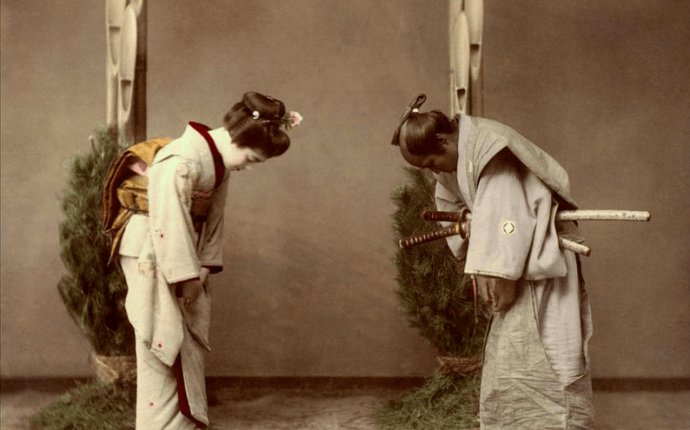
Japanese customs and etiquette

Japan Guide
Japan Travel
Culture & Food
posted by Do you ever wonder what they talk about on Japanese tour buses?When the Japanese visit other countries on tours, the tour company educates the group about local manners and customs on the way. They always include a line that says that tourists represent Japan and should try their hardest to leave a good impressive. This is an admirable way to look at travel manners.The Japanese themselves have an extensive collection of manners and customs that are interesting to learn. They say much about Japan's world view and its culture. As a traveler, you wont master Japanese manners right away. Nevertheless, every effort you make will greatly improve your chances of impressing the locals. It's all part of the process of exploring and participating in Japanese culture.If you live in Japan, Japanese manners usually become second nature with time. Long term foreign residents typically retain their sense of Japanese manners even if they return home. Common manners and customs in Japan include:
It's all part of the process of exploring and participating in Japanese culture.If you live in Japan, Japanese manners usually become second nature with time. Long term foreign residents typically retain their sense of Japanese manners even if they return home. Common manners and customs in Japan include:
2. Paying The Check
In Japan it's quite common to split checks amongst friends or even on a date. This is known as betsu-betsu. It's uncommon for restaurants to offer separate checks so people just roughly figure it out amongst themselves. It's common for men to offer to pay slightly more because they typically have a more expensive bill. It's quite rare to figure out the actual amounts, instead people approximate things. In many cases, a senior member of your group will pay more. In business situations it's not acceptable to split the check. Usually the company that's selling something pays. When someone pays a check it's customary to pretend that you want to pay by fighting for the check. This shouldn't be taken seriously. If your customer ends up paying you'll have little chance of closing the sale.
It's quite rare to figure out the actual amounts, instead people approximate things. In many cases, a senior member of your group will pay more. In business situations it's not acceptable to split the check. Usually the company that's selling something pays. When someone pays a check it's customary to pretend that you want to pay by fighting for the check. This shouldn't be taken seriously. If your customer ends up paying you'll have little chance of closing the sale.
3. Pouring Your Own Drink
At dinner parties, it's somewhat rude to pour your own drink. Instead pour everyone's drink but your own and someone will notice and fill yours. It's popular to order shared bottles of beer and sake because this routine is one of the charms of an evening.Shaking hands is very common for business introductions in Japan. There's no reason to bow unless you're familiar with the custom. The most important point here is to make your intentions completely clear with your body language. Bowing and shaking at the same time doesn't work and is just awkward.
5. Seating Position
In business meetings people from one company all sit on the same side. The customer...













